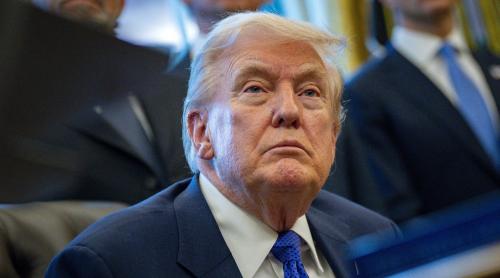
For over three years now, the Romanian military has to put up with the constant change of ministers at the top of its ministry.
For over three years now, the Romanian military has to put up with the constant change of ministers at the top of its ministry.
The political bickering opposing President Traian Basescu and Prime-Minister Calin Popescu Tariceanu made for a climate of political pressures and insecurity to put a grip on the command structure of the military, bringing it to the point of disagreeing with the supreme coordinating authority, namely the Supreme Council for the Defense of the Country.
In three years the Ministry of Defense had three different ministers at the top, resulting in lack of continuity in the civil and democratic control of the military.
Domestic talks on the budget and international talks on Romania's commitments outside the country must have also suffered from that lack of continuity at the helm.
Since talking office in late 2000, the Basescu-Tariceanu bickering couple of Romanian politicians placed the military at the heart of its feud.
The National Liberal Party, headed by Tariceanu, sent via the military attaches to Romania's embassies the party's position for the country's withdrawal from the international force in Iraq.
The liberal defense minister executed his party's orders, and it was a struck of luck the swift reaction of the head of the Joint Chiefs of Staff at the time, who promptly informed the military attaches to regard the previous dispatch as the view of one political party in Romania, and not as the change of Romania's military commitment abroad, since neither the Parliament nor the Supreme Council for the Defense of the Country had approved the Iraqi withdrawal.
Teodor Melescanu's nomination at the helm of the military, after Teodor Atanasiu and Sorin Frunzaverde, seemed to bring about a seamless of normalcy.
But two months before the NATO summit to be hosted by Romania a new spate of friendly fire started.
First on the map came the issue of Romania's troops taking part in the mission in Chad, which again, did not have the Parliament or the Supreme Council's approval. The lack of dialog among the state authorities made for an awkward moment during the recent visit of the French President Nicholas Sarkozy, who wanted confirmation that Romania would join France in the EUFOR troops in Chad.
Melescanu is now leaving the seat at the helm of the military to take on the justice portfolio. He surrendered at the pressures from his National Liberal Party.
Thus, two months prior to the NATO Summit in Bucharest the military again lack a civilian at its head, while Basescu procrastinates signing into office Tariceanu's choice for a replacement to Melescanu.
Former heads of the Joint Chiefs of Staff are decimated like Chad leaders are, by investigations sprouted from the political bickering.
So far, the military had been a silent partner which contributed to Romania's integration into NATO, It would draw its own conclusions of where it stands, no doubt about that, in the electoral year of 2008.
- Translated by Anca Păduraru

















